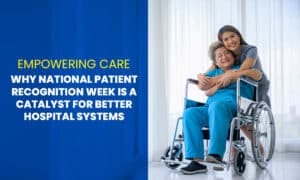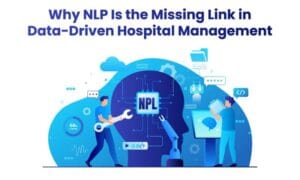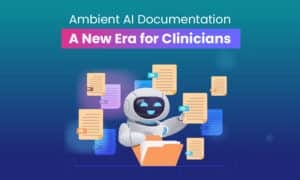
Remember when getting a doctor’s appointment meant endless phone calls and sitting in crowded waiting rooms? Thanks to the incredible technological revolution sweeping through healthcare, those days are rapidly becoming history. From virtual doctors’ visits to AI-powered diagnostics, technology transforms how we receive and deliver medical care in ways we could only dream of a decade ago.
The Digital Health Revolution: More Than Just Gadgets
Think of today’s healthcare technology as a bridge – connecting patients with better care, doctors with better tools, and researchers with better insights. It’s not just about fancy gadgets and flashy screens; it’s about creating a healthcare system that’s more accessible, efficient, and human-cantered than ever before. As we dive into the latest trends, you’ll see how each piece of technology brings us closer to this vision.
- Virtual Reality
Step into any modern medical school, and you might find students performing surgery – in virtual reality. VR has evolved beyond gaming, emerging as a valuable tool for training healthcare professionals and providing therapeutic solutions for patients. From helping people overcome phobias to managing chronic pain, virtual reality is creating real-world healing in ways we never imagined possible.
- Wearables
Your watch isn’t just telling time anymore – it’s tracking your heart rate, monitoring your sleep, and even detecting irregular heartbeats. These smart devices have become our personal health companions, giving us (and our doctors) invaluable insights into our daily health patterns. It’s like having a mini health guardian on your wrist!
Know more about Wearable Wonders and Virtual Care: The Dawn of Digital Health
- Interoperability and Connectivity
Remember the frustration of having to repeat your medical history at every new doctor’s office? Those days are fading as healthcare systems finally learn to talk to each other. Modern healthcare facilities are building digital bridges, ensuring your medical information follows you seamlessly and securely wherever you go.
Let’s explore FHIR Data Exchange – Ezovion FHIR
- Healthcare AI
Artificial Intelligence is transforming diagnostic processes, drug discovery, and treatment planning. AI algorithms can analyse medical images with remarkable accuracy, identify patterns in patient data, and predict potential health issues before they become serious. This technology is particularly powerful in radiology and pathology, where it assists professionals in making more accurate diagnoses.
Click here to learn more about Ezovion AI
- 3D Printing
The advent of medical 3D printing has revolutionised personalised healthcare. This technology enables healthcare providers to create bespoke medical solutions, from custom prosthetics and dental implants to patient-specific surgical guides. Researchers are even exploring the possibility of printing human tissues and organs for transplantation.
- Machine Learning in Biopharma and Medtech
Machine learning algorithms are accelerating drug development and medical device innovation. These systems can analyse vast amounts of clinical trial data, predict drug interactions, and optimise medical device designs. This technology significantly reduces development time and costs while improving new treatments’ success rate.
- Telemedicine and Remote Patient Monitoring
The recent global health challenges have catapulted telemedicine into the mainstream. Virtual consultations, remote monitoring systems, and digital health platforms have made healthcare more accessible than ever. Patients can now receive expert medical advice from the comfort of their homes, whilst healthcare providers can efficiently manage their patient load.
Let’s dive deeper into the topic of Technology and the future of healthcare
- Cloud Computing and Healthcare
Cloud-based healthcare solutions have transformed data storage and accessibility. Healthcare organisations can now securely store and access vast amounts of patient data, medical research, and administrative information. This technology enables better collaboration amongst healthcare providers and improves the efficiency of healthcare delivery.
Check this out Hospital IT Manager | Ezovion
- Internet of Medical Things (IoMT)
The IoMT network connects medical devices, software applications, and healthcare systems, creating an interconnected ecosystem of health-related technology. These devices, from smart hospital beds to connected inhalers, generate valuable data that helps improve patient care and operational efficiency.
Check this out for more info How IoMT in Healthcare is Revolutionizing Patient Care
- Artificial Intelligence
Beyond diagnostics, AI is revolutionising healthcare administration, drug discovery, and personalised medicine. Natural language processing helps manage medical records, whilst predictive analytics assist in hospital resource management and patient flow optimisation.
Click here to learn more about Ezovion AI
- Robotic Surgery
Surgical robots have evolved to become incredibly precise tools in modern operating theatres. These systems enable surgeons to perform minimally invasive procedures with enhanced precision and control. Integrating AI and machine learning further improves surgical outcomes and reduces recovery times.


Looking to the Future: What’s Next in Healthcare?
Let’s take a moment to think about what’s coming next in healthcare. The changes we’re seeing aren’t just from science fiction anymore – they’re becoming real, and they’re making healthcare better for all of us.
In the next few years, we’ll likely see some amazing developments. Doctors might use tiny devices smaller than a grain of rice to deliver medicine exactly where it’s needed in our bodies. Your phone or watch might be able to spot health problems weeks before you feel any symptoms, helping you stay healthy rather than just treating you when you’re ill.
Some other exciting things are just around the corner:
- Smart pills that can send data to your doctor about how your body is responding to treatment
- Better ways to treat diseases by looking at your unique genetic makeup
- More accurate and faster ways to spot diseases early
- Simpler ways to talk to your doctor from home
- Easier access to your health records and test results
But here’s what’s really important: all this new technology isn’t meant to replace the human touch in healthcare. Instead, it’s helping doctors and nurses spend more time actually caring for patients. When computers handle the paperwork and routine tasks, healthcare workers can focus on what they do best – helping people.
Think of it this way: technology in healthcare is like having a really good assistant who helps everything run smoothly. It makes things faster and easier, but at the end of the day, healthcare is still about people taking care of other people.
The future of healthcare looks bright, not because it’s becoming more high-tech, but because it’s becoming more human.





